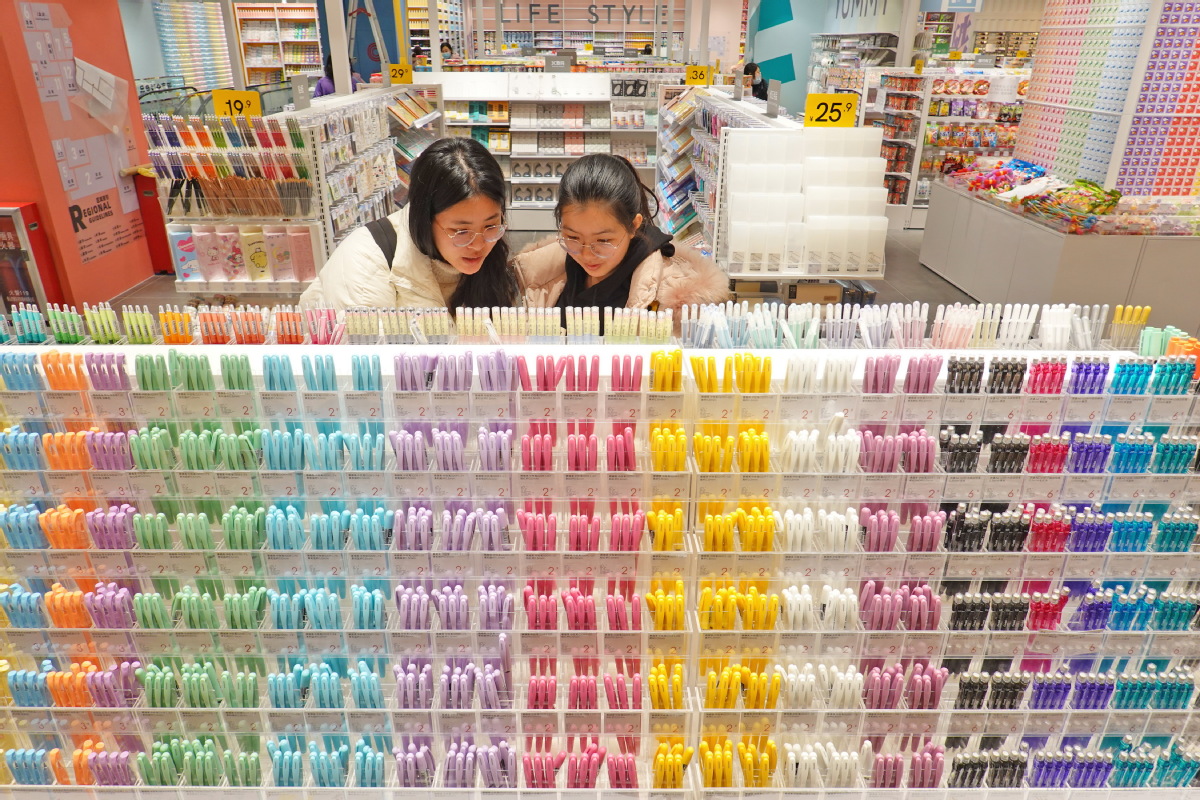Boosting consumption with balanced policy


Recently, some provincial-and city-level governments rolled out a series of measures to boost consumption. Xi'an, capital of Shaanxi province, has extended the policy of purchase subsidies on new energy vehicles and waived NEV purchase tax till the end of 2022, and planned to offer financial support for rural residents to buy vehicles.
The Inner Mongolia autonomous region pledged it will stabilize and increase residents' incomes and promote a more efficient logistics system between urban and rural areas.
"There will be more measures to boost consumption in the traditional sectors, and promote consumption in emerging sectors. Active measures to boost consumption in rural areas, townships and counties are also expected," Wei said.
China has seen positive signs of rebounding consumption. According to data from the National Bureau of Statistics, total retail sales of consumer goods increased 0.5 percent year-on-year to nearly 3.36 trillion yuan ($514 billion) in August, marking the first positive growth this year.
The positive growth lasted for four consecutive months. In November, China's retail sales of consumer goods went up by 5 percent year-on-year to over 3.95 trillion yuan.
According to a recent report from the Chinese Academy of International Trade and Economic Cooperation, the contribution of final consumption expenditure to economic growth rebounded to 34.9 percent in the third quarter, up from a negative 73 percent in the second quarter.
The report showed that China's consumption growth rate and consumption's contribution to economy have rebounded at a steady pace.
It predicts that China's consumer demand will further recover and consumption will remain a driver of economic growth.
The report also said consumers' stickiness in online purchases has increased significantly due to social distancing norms and need for contactless shopping, and e-commerce platforms have become a main channel of consumption.
"The pandemic has forced many people to stay at home instead of going out, and this has resulted in a significant change in the retail landscape. The way people shop is no longer the same and some of these changes may be permanent," said Justin Sargent, president of Nielsen China.
In the first 10 months of this year, online retail sales of physical goods rose 16 percent year-on-year to 7.56 trillion yuan, accounting for 24.2 percent of the total retail sales of social consumer goods, according to the National Bureau of Statistics.
Data from the Ministry of Commerce show the number of online shopping users increased by 100 million, and the total number of stores on major online retail platforms increased by 3.8 percent yearon-year in the first half of this year.
The number of livestreaming e-commerce activities exceeded 10 million in the first half, with active anchors estimated at 400,000 who commanded total views of more than 50 billion.
"Affected by COVID-19, the market saw booming of new forms of consumption like livestreaming, e-commerce, product sales on short-video platforms, digital transformation of supermarkets and grocery stores, and digitalization of community services. The boom of such new forms of consumption also promotes structural transformation of related industries like distribution and logistics," Zhou said.
According to Zhou, consumption in some industries like online education and healthcare are still in the early stages of development. Consumption of services in culture and entertainment still has large room for further growth.
Wei of the Development Research Center of the State Council said that the relatively low income level of some consumers is restricting their consumption.
"It is necessary to increase income levels and narrow the income gap, especially that between urban and rural residents, through measures like increasing employment, adjusting the tax system, improving national welfare, and improving social security, and better managing expenditure on housing, medical care and education, so as to further release national consumption potential," Wei said.




































